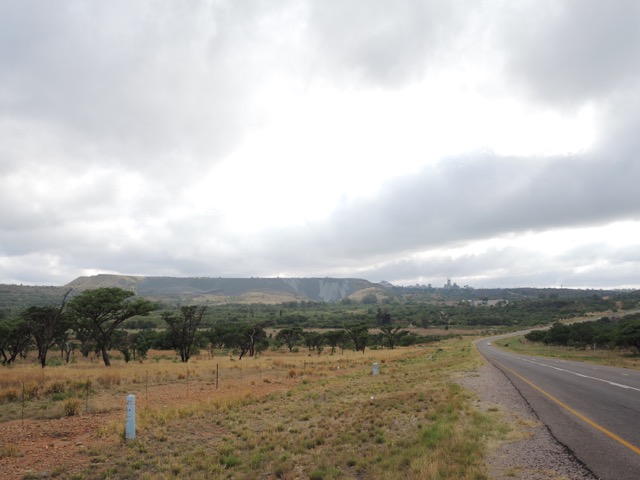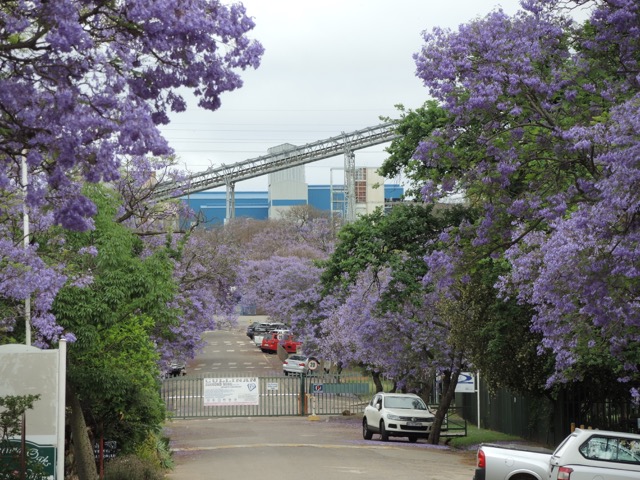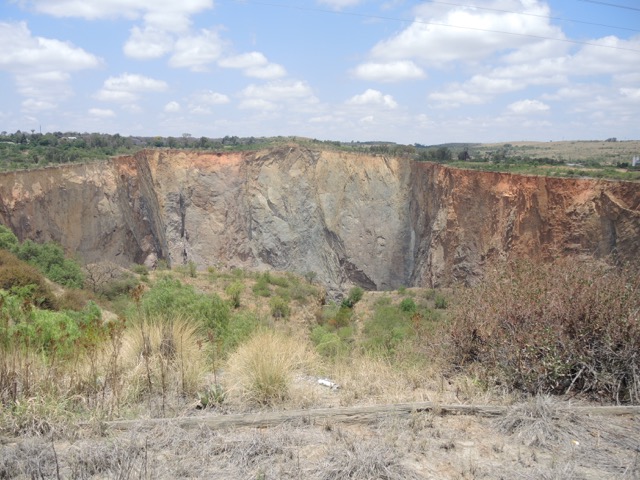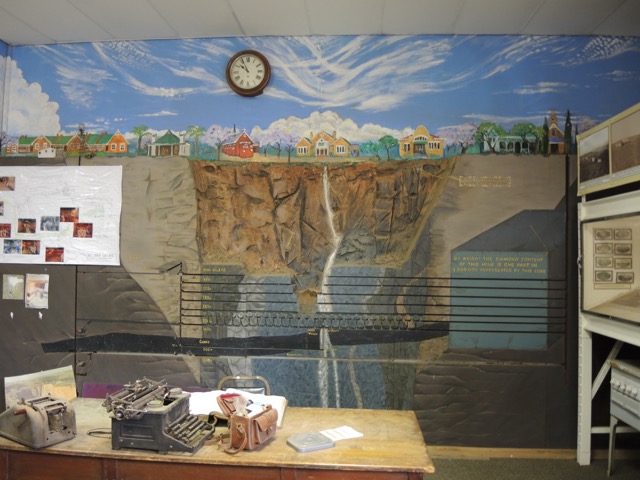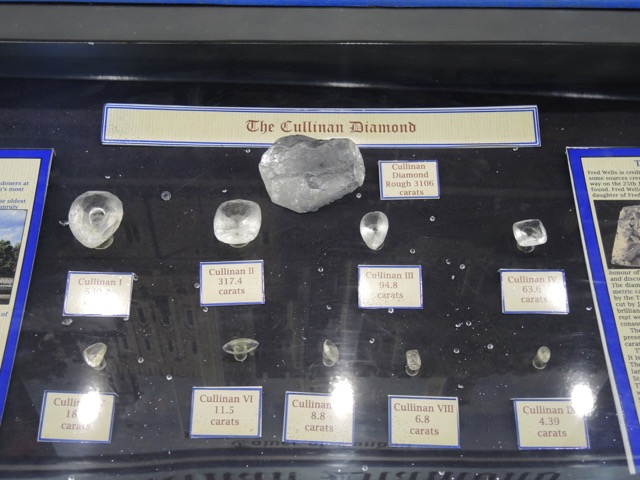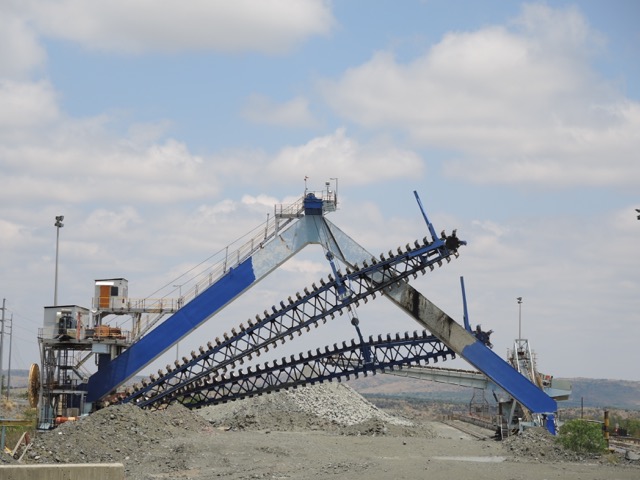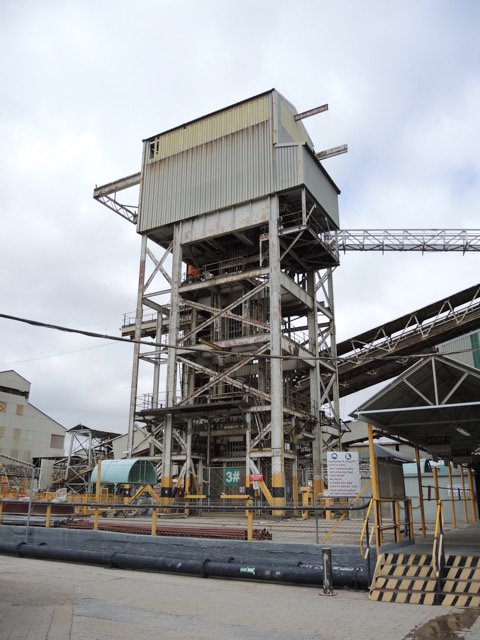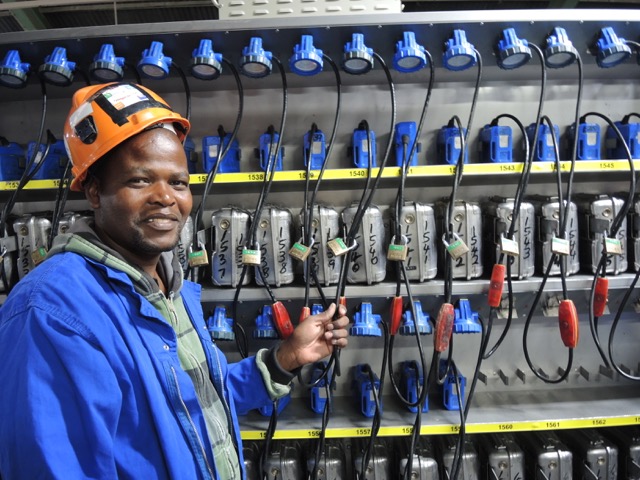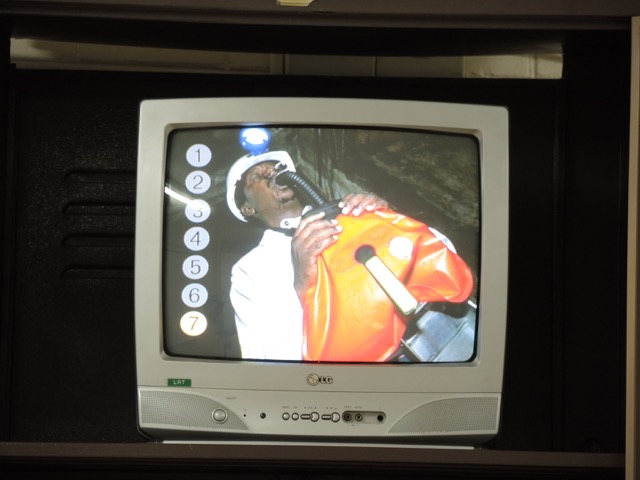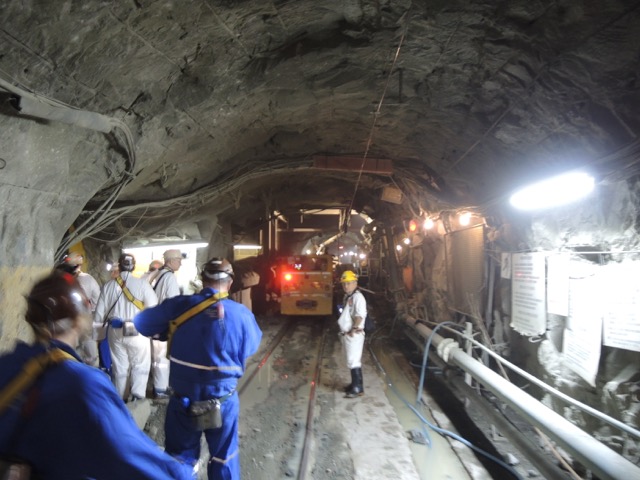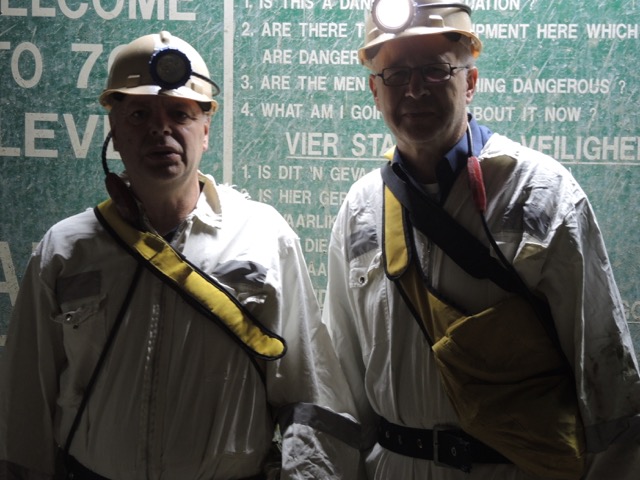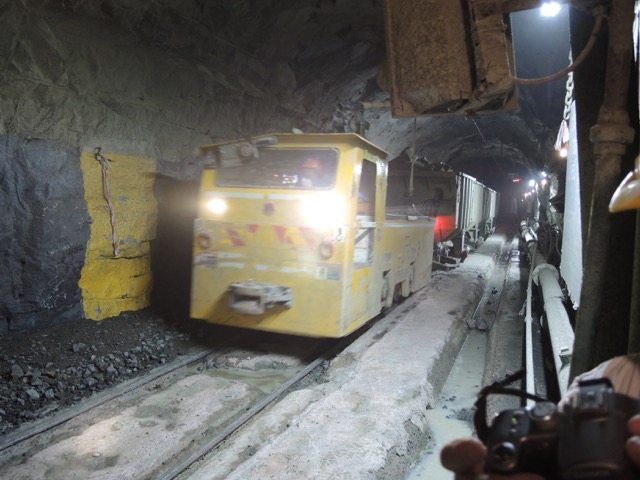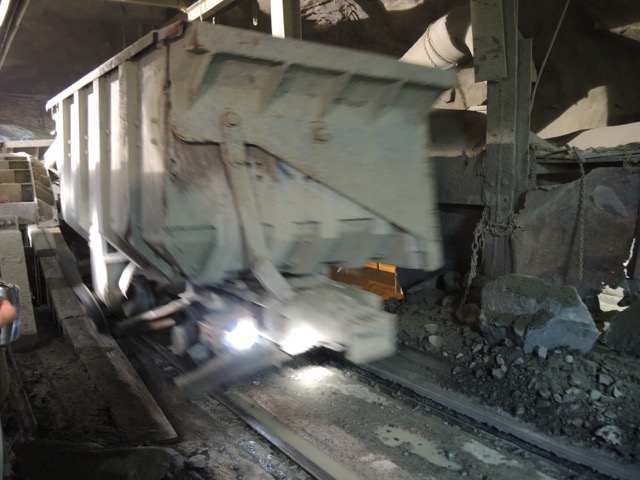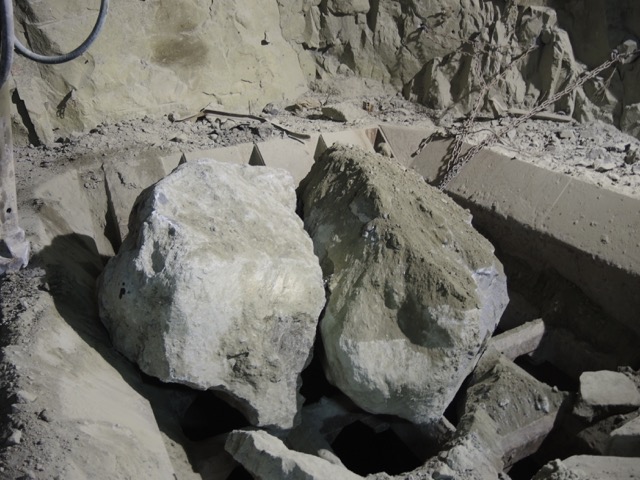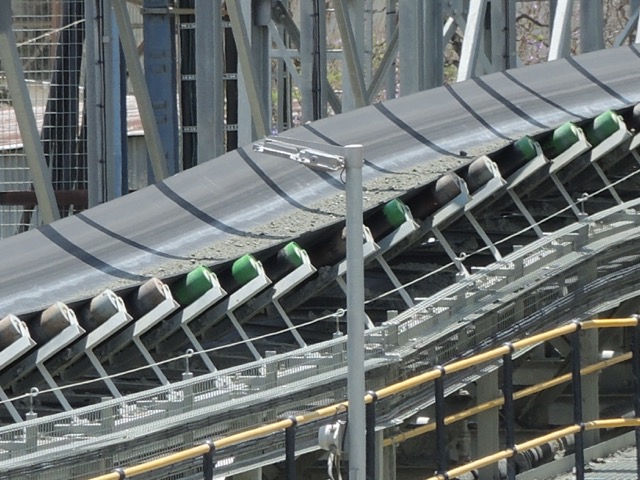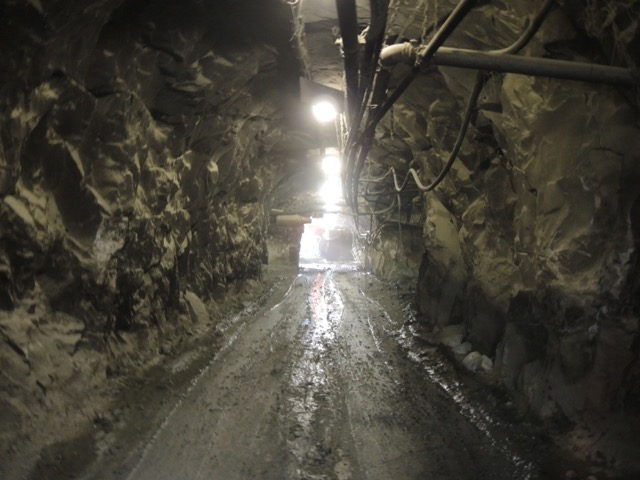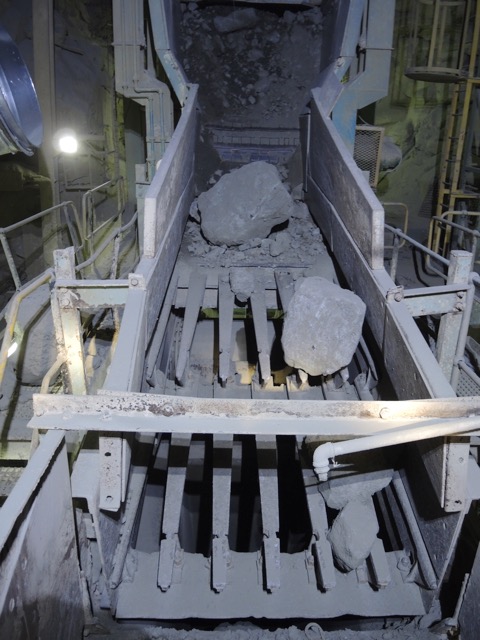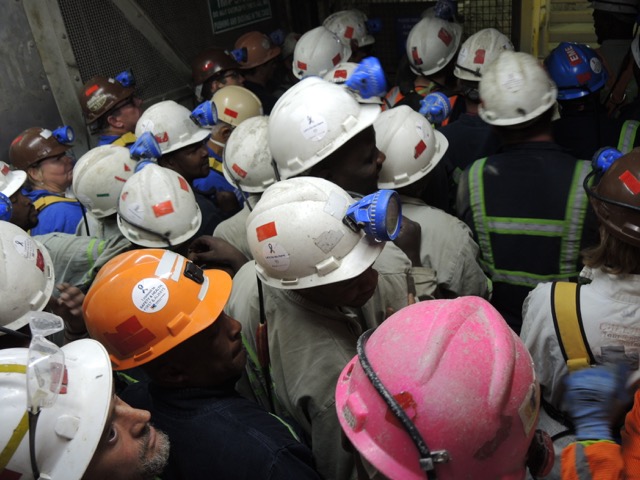A day in a gem mine
Gold mines are everywhere in the cityscape of Johannesburg. Naturally enough, we do not see what goes on below the surface; but piled up above it there are enormous table mountains – the waste tips. That always made me curious. I didn’t actually get the opportunity to visit a mine until now, eight years later. At a tourism portal on the Internet I happened on a feature offered by the Cullinan Mine near Pretoria, in which they do guided tours of the mine site and also a visit below ground. My interest was aroused immediately and I duly booked a tour. On a Saturday in November I set off to Pretoria together with a friend, and then on to Cullinan, forty kilometres further east.
The starting point for our underground tour was the little museum, in which all kinds of memento from the history of the mine and reproductions of historical diamonds are on show. After a brief introduction, we were equipped for our expedition. The international ten-man visitor group was issued with overalls, wellingtons, a miner’s belt and the obligatory hard hat. Then, off to the mine in a personnel carrier. In a multi-media room we were shown a video which explained how to use breathing apparatus in an emergency; then, each visitor had a silver box and a rechargeable battery fixed to his belt and a miner’s lamp to his helmet. Then, down we went at last, in a high-speed lift, to 763 metres below the surface. As the roller gate rose, our eyes met the pit and our underground walk through the tunnels began. The air was good and the temperature, at 26 degrees, bearable. Our guide, a retired miner, told us about work under ground with great enthusiasm and explained the various different processes at the respective stations. We visited the crusher and were able to watch a train with several wagons unloading its precious cargo, the diamantiferous kimberlite rock, into the conveyor. Noise and dust are both normal day-to-day phenomena. Again and again, we had to remind ourselves that all this was happening well below the Earth’s surface. The precious raw materials are brought up into the light of day with a combination consisting of sophisticated technology, centuries of experience and the painstaking labour of the miners, and then sent for further processing. After we had been below ground for three hours, we set off back towards the light in the lift, and because it just happened to be time for a change of shifts, 80 miners went up with us. In the lift there was such a Babel of languages that I imagined I could hear all eleven national tongues of South Africa at the same time.
Back in the fresh air again, under the midday sun, we walked through industrial facilities and past conveyors to the Big Hole. We marvelled at this enormous pit, which is 1000 m long, 400 m wide and 500 m deep, and were also shown the place where the famous Cullinan Diamond was found in 1905. At 621 g / 3106 carats, the Cullinan is the largest raw diamond ever found.
We didn’t see any diamonds shining out on our tour of the mine, but we’re sure that there were some in the rocks that had been fetched up. That insight into the world of the mine made a deep impression on us, particularly as we were able to gain it while work was actually going on – an unforgettable experience.
Editor: Jürgen Waxweiler
Jürgen Waxweiler
About Jürgen Waxweiler: Jürgen is a well known artist and sculptor who has been spending half his time living in Johannesburg, South Africa for eight years now. His home town, and the focal point of his life, is the wine village of Traben-Trarbach on the Moselle, very close to Idar-Oberstein. Our common enthusiasm for stones, rocks and art, and our cosmopolitan attitude, unite us in friendship. In November 2018 Jürgen visited the Cullinan Diamond Mine near Pretoria and sent me this report, which I would now like to share with my readers.


